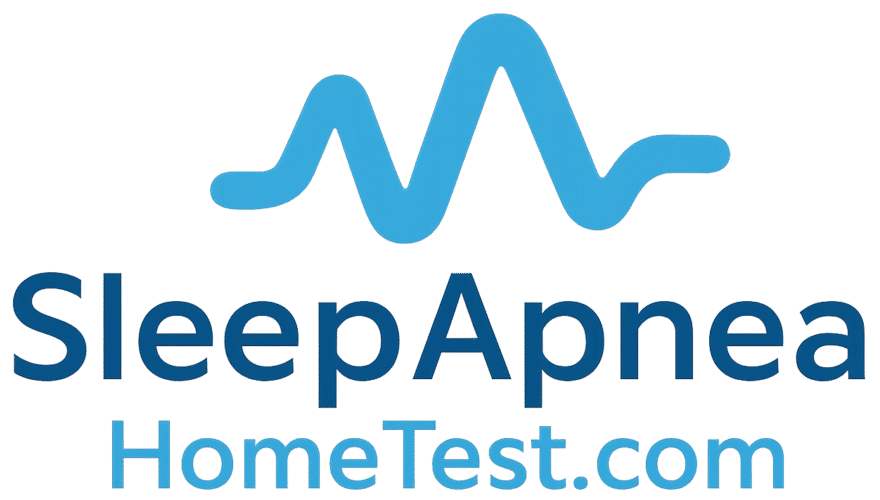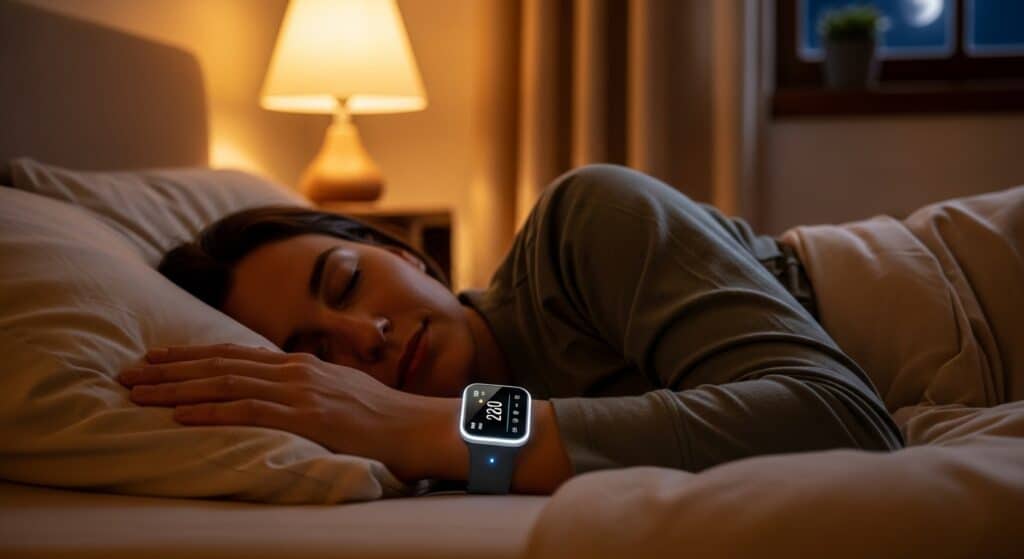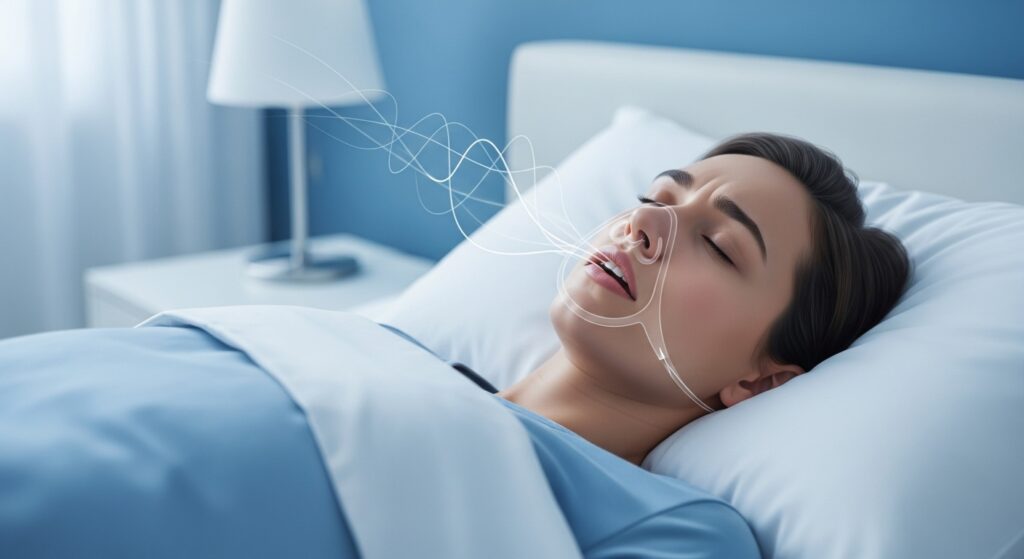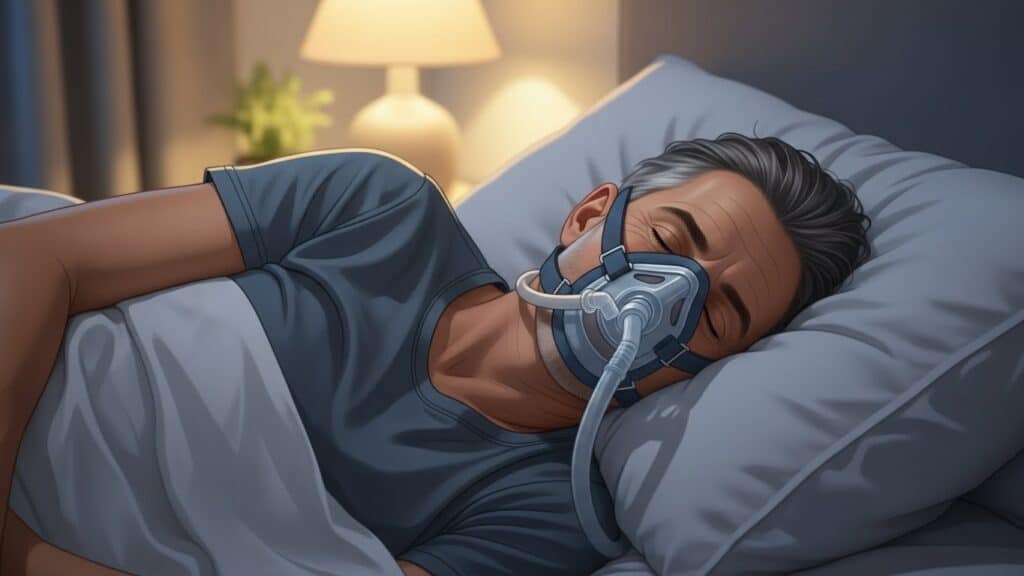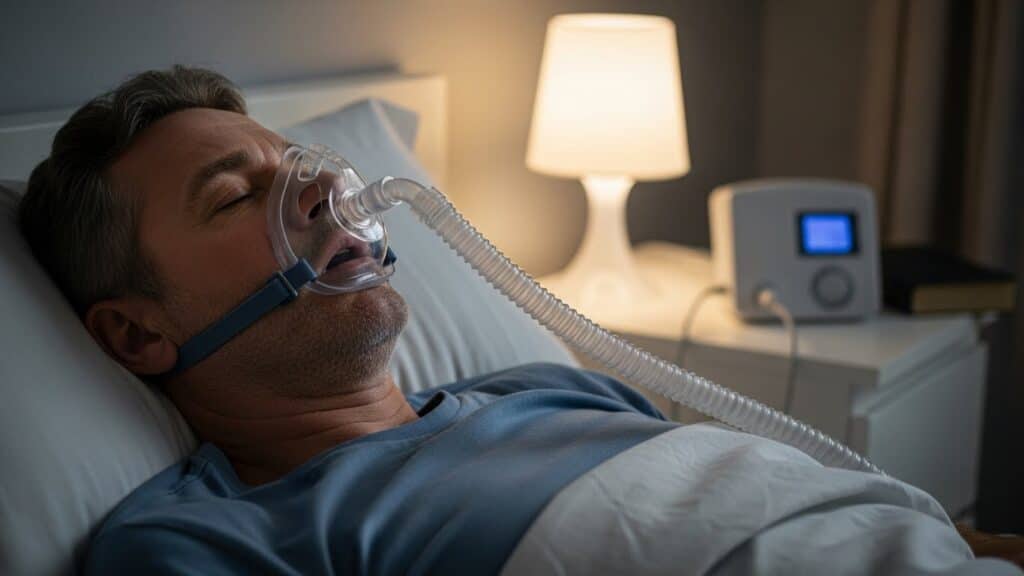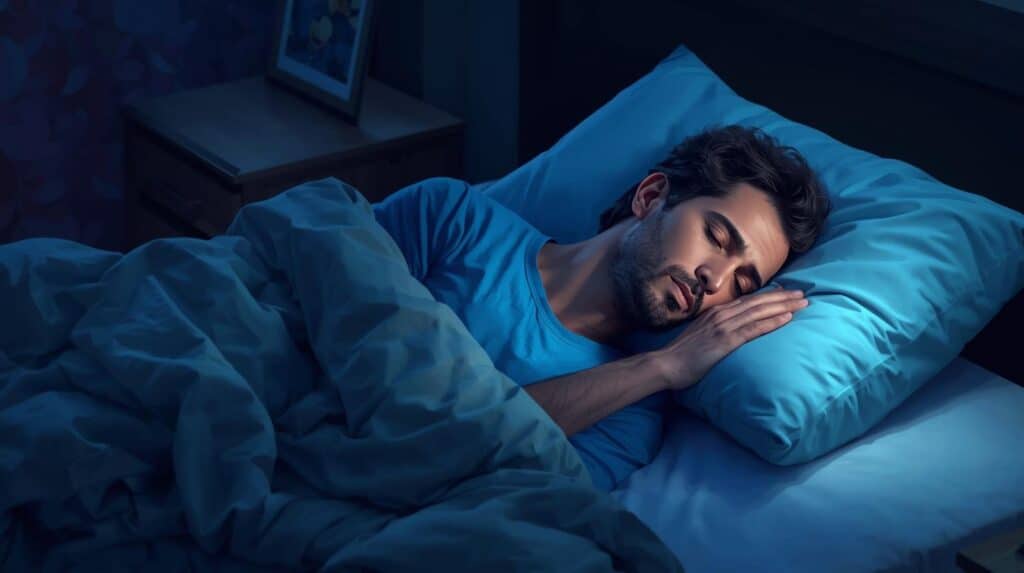If you’re waking up parched in the middle of the night—even though you’ve got your CPAP mask on or your room seems fine—you’re not alone. Dry mouth is one of the most common complaints among people managing obstructive sleep apnea, especially those using positive airway pressure therapy.
It’s more than just a nuisance. Chronic dry mouth can lead to tooth decay, gum issues, and interrupted sleep. But the good news? It’s almost always fixable.
Let’s walk through what causes it and what you can actually do to stop waking up thirsty at 2 a.m.
What’s Causing Your Dry Mouth?
A few factors might be at play:
- Mouth breathing – Often caused by nasal congestion or habitual patterns, this lets air dry out oral tissues
- Air leaks from CPAP mask – Even tiny gaps in mask fit can direct pressurized air into the mouth
- Low humidity in airflow – Some machines need added moisture, especially in winter or dry climates
- Medications – Antidepressants, antihistamines, and blood pressure meds are known culprits
- Dehydration – Not drinking enough during the day can catch up to you at night
For apnea patients, it’s typically a mix of mask fit, airflow, and breathing habits.
Proven Fixes You Can Start Tonight
You don’t have to overhaul your entire sleep setup. These straightforward tweaks often solve the problem quickly:
- Add a Heated Humidifier
Many CPAP devices come with a heated humidifier attachment or integrated option. Increasing humidity prevents airway dryness and keeps your mouth and throat comfortable.
- Start with humidity level 2 or 3
- Adjust upward gradually if needed
- If water is running low mid-night, use a larger tank or fill just before bed
If you already use one and still experience dry mouth, the issue may lie elsewhere—like air escaping through the mouth.
- Use a Chin Strap or Full-Face Mask
Mouth leak is one of the most common causes of dry mouth with CPAP. A chin strap helps keep your mouth closed if you use a nasal mask. But if that’s not enough, consider switching to a full-face mask, which delivers air through both the nose and mouth.
This approach also helps:
- Prevent overnight mouth popping
- Maintain consistent therapy pressure
- Improve overall sleep comfort
- Try a Room Humidifier
Even if you don’t use a CPAP device, dry room air—especially from AC or heaters—can cause nighttime dryness. A small, bedside humidifier adds moisture to the air and may significantly reduce oral dryness.
For best results:
- Use distilled water to avoid mineral buildup
- Clean the device weekly to prevent mold
- Keep humidity under 50% to avoid condensation or dust mites
- Rinse Before Bed with a Dry Mouth Product
Some oral rinses or sprays are formulated to keep the mouth moist for hours without alcohol or menthol (which can make dryness worse). Look for:
- Xylitol-based rinses
- pH-balanced formulas
- Long-lasting moisture retention
This can offer relief for those with medication-induced dryness or persistent low salivary flow.
- Adjust CPAP Air Pressure (If Advised)
High-pressure settings can worsen dryness. If you suspect your air pressure is higher than necessary or if your mask puffs air into your mouth, talk to your provider. They may suggest:
- Auto-adjusting (APAP) settings
- Pressure ramp features
- A mask style change to reduce leak
Never change your pressure without consulting your sleep tech or physician.
When Dry Mouth Is a Warning Sign
In some cases, dry mouth could be a sign that your sleep apnea treatment isn’t optimized. That includes:
- CPAP leaks you didn’t notice
- Mouth breathing that’s not addressed
- Apnea episodes despite device use
It may be worth repeating your sleep study or using a home sleep test to ensure your current therapy is doing its job.
Could Facial Structure Be a Factor?
Sometimes, facial structure or jaw position can increase mouth breathing risk. If your lower jaw sits back or your airways are naturally narrow, you may be more prone to oral dryness—even with perfect CPAP compliance.
In such cases, newer technologies like facial scans can identify airway risk factors and help your provider recommend targeted changes.
Simple Daytime Habits That Help at Night
A few lifestyle habits can ease dryness long before you hit the pillow:
- Stay hydrated throughout the day—aim for consistent intake, not just before bed
- Limit caffeine and alcohol, which dry tissues
- Treat allergies or congestion, especially during seasonal flare-ups
- Avoid salty or acidic foods before bedtime
- Practice nasal breathing with gentle daytime exercises or nasal dilators
The Bottom Line
Waking up with dry mouth at 2 a.m. can feel frustrating—but it’s usually solvable with small adjustments. Whether it’s tweaking your CPAP humidity, switching masks, or hydrating smarter, the key is to address the root cause, not just the symptoms.
If dry mouth continues despite trying these fixes, it might be time for a rescan or sleep test to revisit your setup. Your body—and your oral health—will thank you.
